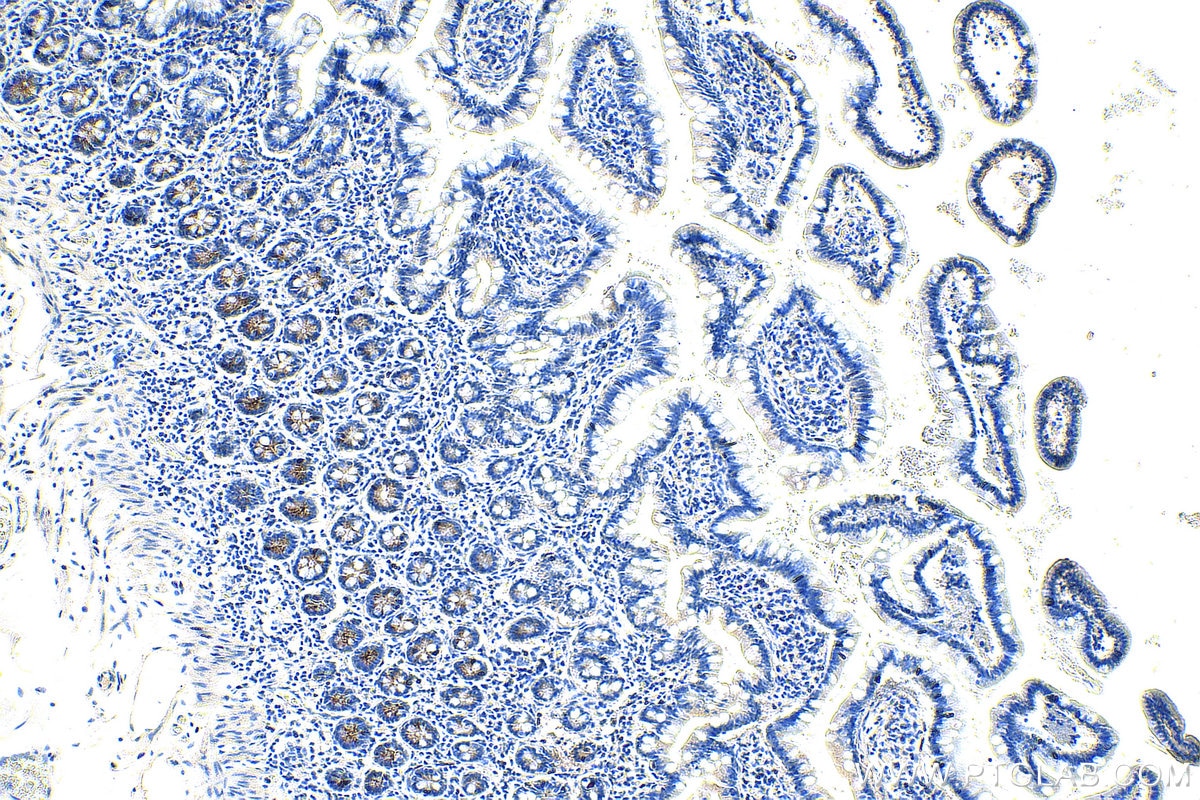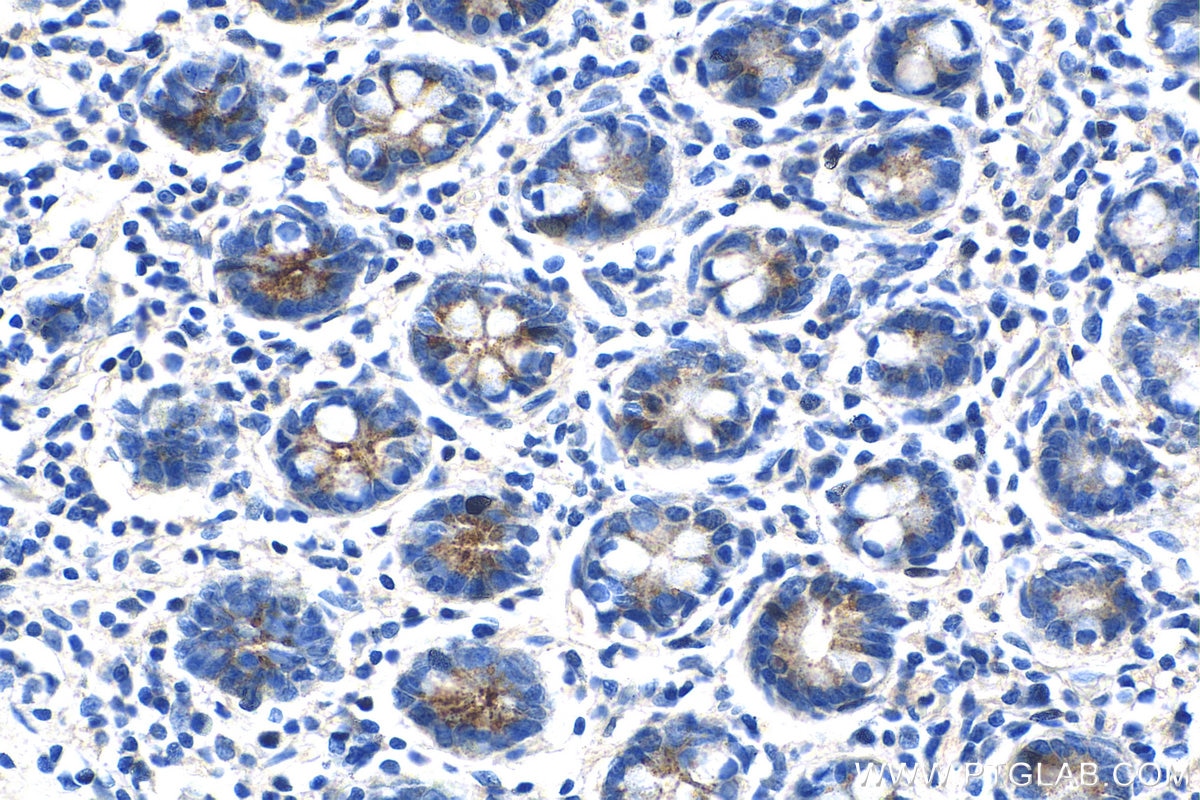Validation Data Gallery
Tested Applications
| Positive IHC detected in | human small intestine tissue Note: suggested antigen retrieval with TE buffer pH 9.0; (*) Alternatively, antigen retrieval may be performed with citrate buffer pH 6.0 |
Recommended dilution
| Application | Dilution |
|---|---|
| Immunohistochemistry (IHC) | IHC : 1:500-1:2000 |
| It is recommended that this reagent should be titrated in each testing system to obtain optimal results. | |
| Sample-dependent, Check data in validation data gallery. | |
Published Applications
| IHC | See 1 publications below |
| IF | See 1 publications below |
Product Information
28432-1-AP targets OLFM4 in IHC, IF, ELISA applications and shows reactivity with Human samples.
| Tested Reactivity | Human |
| Cited Reactivity | human, mouse |
| Host / Isotype | Rabbit / IgG |
| Class | Polyclonal |
| Type | Antibody |
| Immunogen |
CatNo: Ag28914 Product name: Recombinant human OLFM4 protein Source: e coli.-derived, PGEX-4T Tag: GST Domain: 60-233 aa of NM_006418 Sequence: LGSGGSVSQLFSNFTGSVDDRGTCQCSVSLPDTTFPVDRVERLEFTAHVLSQKFEKELSKVREYVQLISVYEKKLLNLTVRIDIMEKDTISYTELDFELIKVEVKEMEKLVIQLKESFGGSSEIVDQLEVEIRNMTLLVEKLETLDKNNVLAIRREIVALKTKLKECEASKDQN 相同性解析による交差性が予測される生物種 |
| Full Name | olfactomedin 4 |
| Calculated molecular weight | 57 kDa |
| GenBank accession number | NM_006418 |
| Gene Symbol | OLFM4 |
| Gene ID (NCBI) | 10562 |
| RRID | AB_2918163 |
| Conjugate | Unconjugated |
| Form | |
| Form | Liquid |
| Purification Method | Antigen affinity purification |
| UNIPROT ID | Q6UX06 |
| Storage Buffer | PBS with 0.02% sodium azide and 50% glycerol{{ptg:BufferTemp}}7.3 |
| Storage Conditions | Store at -20°C. Stable for one year after shipment. Aliquoting is unnecessary for -20oC storage. |
Background Information
Olfactomedin-4 (OLFM4), also named as hGC-1 (human G-CSF-stimulated clone-1) or antiapoptotic protein GW112, is a secreted glycoprotein normally expressed in bone marrow, prostate, small intestine, stomach, colon and pancreas (PMID: 11867215; PMID: 22471589). OLFM4 has been found to be up-regulated in gastrointestinal cancer and inflammatory disease including inflammatory bowel disease and H. pylori infection (PMID: 20534456). OLFM4 is involved in cellular process such as apoptosis, cell adhesion and tumor growth (PMID: 22471589; 16566923; 15059901).
Protocols
| Product Specific Protocols | |
|---|---|
| IHC protocol for OLFM4 antibody 28432-1-AP | Download protocol |
| Standard Protocols | |
|---|---|
| Click here to view our Standard Protocols |
Publications
| Species | Application | Title |
|---|---|---|
Adv Sci (Weinh) Deciphering the Metabolic Impact and Clinical Relevance of N-Glycosylation in Colorectal Cancer through Comprehensive Glycoproteomic Profiling | ||


